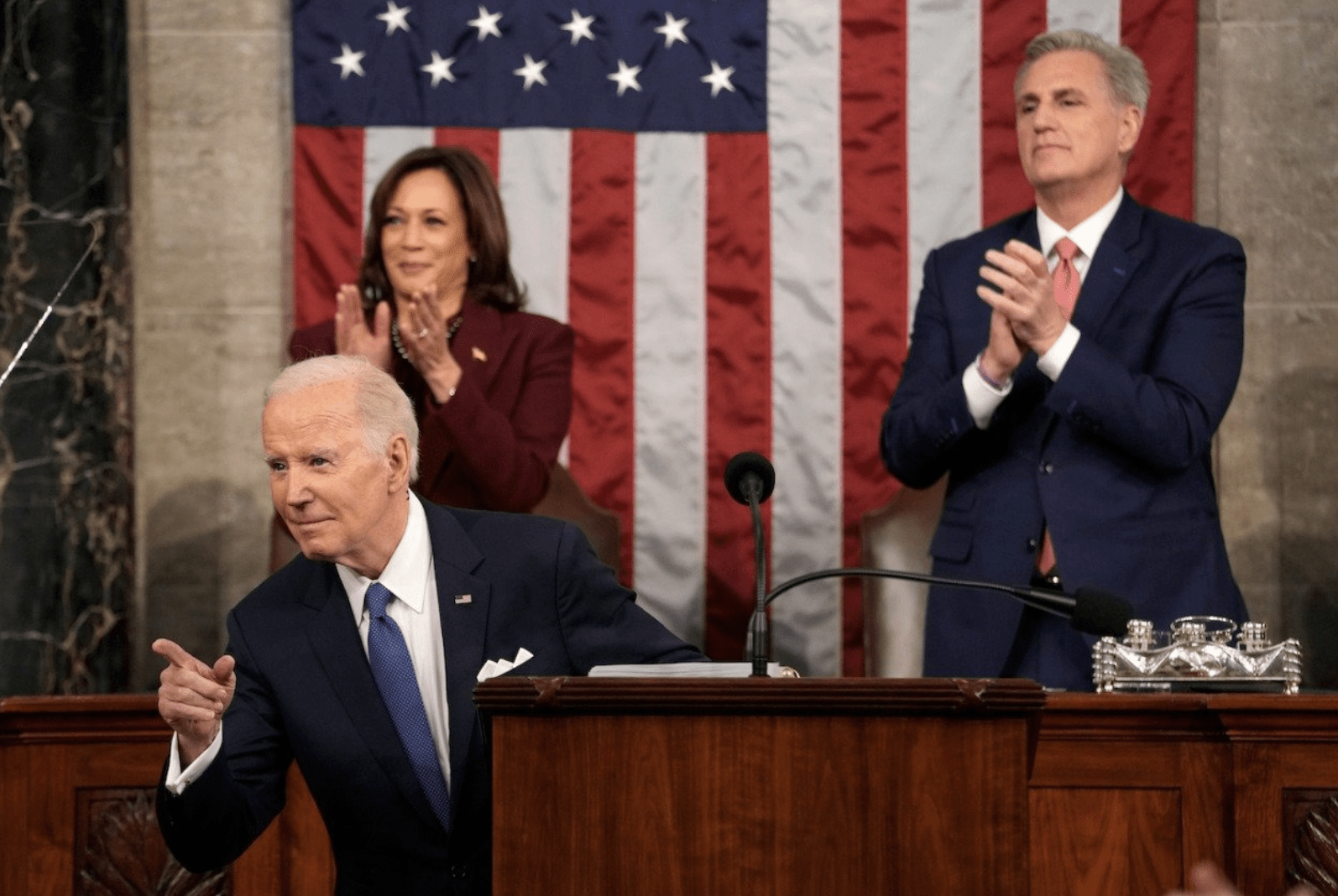State of the Union: Joe Biden’s Master Class in Humanism vs. Populism
 AP
AP
Lisa Van Dusen
February 7, 2023
With roughly a year to go before what is now the first vote cast in the presidential election cycle — in the new Iowa, the South Carolina primary next February 3 — President Joe Biden set out what certainly appeared to be his argument for re-election on Tuesday night.
“Let’s finish the job,” was the bipartisan-unity refrain, with a heavy dose of revival-meeting zeal, a dash of heckler baiting with the GOP rat pack, and a lot of extra voltage for the “he’s too old to run again” contingent.
“The people sent us a clear message,” Biden said of the November midterm results that produced a divided Congress, with a narrowly Democratic Senate and narrowly Republican House. “Fighting for the sake of fighting, power for the sake of power, conflict for the sake of conflict, gets us nowhere.”
The speech, which weighed in at one hour, 12 minutes, laid out the progress of the past two years on the economy, fighting COVID, and a geopolitical board that includes robbing Vladimir Putin of the cakewalk he was expecting in Ukraine and China of a frictionless segue to autocratic superpower status.
“In the past two years, democracies have become stronger, not weaker. Autocracy’s grown weaker, not stronger,” he said, before going off-script, nearly shouting, “Name me a world leader who would change places with Xi Jinping, name me one! Name me one!”
Biden has a good economic story to tell about the first two years of his presidency, including Friday’s record-breaking jobs report with an unemployment rate at 3.4 percent, a 50-year low, and near-record low unemployment for Black and Hispanic workers. Key to Biden’s blue-collar bona fides, “800,000 good-paying manufacturing jobs, the fastest growth in 40 years,” as he said. “We have more to do, but here at home, inflation is coming down. Here at home, gas prices are down $1.50 a gallon since their peak. Food inflation is coming down.”
At a time when human beings everywhere may be forgiven for feeling something between besieged and endangered, Biden situated himself firmly on their side — not as a means to an end, but as the reason for his presidency.
Biden’s first address to a joint session of Congress was delivered on April 28th, 2021. It was not a State of the Union. Those are delivered in the second year of a presidency, after a president has more of his own watch to report. That 2021 speech was delivered on the eve of Biden’s 100th day in office, after the worst of the COVID pandemic had been managed into submission, and three-and-a-half months after Donald Trump’s colourful parting gift to American history in the form of a — what’s the opposite of an Irish exit? — deadly mob of lunatics running amok at the US Capitol.
In 2022, Biden delivered his first State of the Union address on March 1st, less than a week after Vladimir Putin’s illegal invasion of Ukraine, which understandably dominated the prompter.
On Tuesday night, Biden delivered the State of the Union that was likely closest to the one he imagined himself delivering when he sat on the rostrum in the House of Representatives over Barack Obama’s right shoulder during Obama’s six SOTUs. Obama was always at his best when he used the power of his pulpit to advocate for the relatively powerless against more malignant forms of power than his.
Biden took that model of the advocacy presidency to another level Tuesday night at a time when people have, arguably, never felt more powerless — in the face of technological change, seemingly inexplicable political narratives, economic uncertainty, previously unthinkable forms of corruption and a daily cavalcade of propaganda and misinformation.
At a time when human beings everywhere may be forgiven for feeling something between besieged and endangered, Biden situated himself firmly on their side — not as a means to an end, but as the reason for his presidency. As a politician, as the cliché goes, whose superpower is empathy, Biden has an unmatched claim to that territory.
“My economic plan is about investing in places and people that have been forgotten. Amid the economic upheaval of the past four decades, too many people have been left behind or treated like they’re invisible,” Biden said. “Maybe that’s you, watching at home. You remember the jobs that went away. And you wonder whether a path even exists anymore for you and your children to get ahead without moving away. I get it.”
Populism has been given a bad name lately by “populists” — fake “men of the people” like Donald Trump and Jair Bolsonaro and other fire breathers who wrap their cynicism in tactical passion to distract from a contempt for voters belied by their contempt for democracy. Biden positioned himself for 2024 Tuesday night as a man for the people. A humanist, not a populist.
Policy Magazine Associate Editor Lisa Van Dusen has served as a senior writer at Maclean’s, Washington columnist for the Ottawa Citizen and Sun Media, international writer for Peter Jennings at ABC News and an editor at AP National in New York and UPI in Washington.
